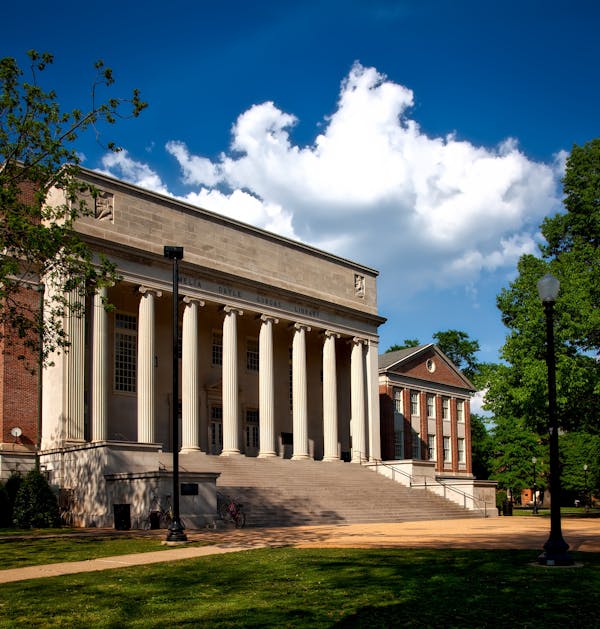The Role and Evolution of Universities in Modern Society
Universities have long been pillars of intellectual growth, innovation, and societal development. From their early beginnings in the Middle Ages to their modern incarnations as complex institutions of research and education, universities play a multifaceted role in shaping not only the minds of individuals but also the socio-economic and cultural frameworks of societies around the world.
The History of Universities
The concept of the university has evolved over centuries. The earliest examples of institutions resembling modern universities date back to the Middle Ages in Europe, with notable examples like the University of Bologna, established in 1088, and the University of Paris, founded in the early 12th century. These institutions were primarily focused on the study of law, medicine, theology, and the liberal arts. At their core, universities were built around the idea of academic freedom—a place where scholars could pursue knowledge without interference from political or religious authorities.

Universities were initially ecclesiastical institutions, heavily influenced by the Church. They provided education for clergy members but eventually expanded to include a broader curriculum and student base. As the Renaissance swept through Europe, universities embraced the humanist tradition, promoting the study of philosophy, science, literature, and the arts. This evolution laid the groundwork for the modern university system.
The Modern University: Roles and Responsibilities
Today, universities serve several key functions. Primarily, they are centers for higher learning where students can pursue undergraduate and postgraduate degrees in a wide array of fields—from engineering and science to the humanities and social sciences. However, the role of universities extends beyond education alone. They also act as centers for research, innovation, and community engagement, impacting everything from policy to business and technology.
1. Education and Skill Development
At the heart of any university is its educational mission. Universities equip students with the knowledge and skills necessary for professional success and personal growth. They provide opportunities for critical thinking, problem-solving, and exposure to diverse perspectives. The emphasis is not only on imparting knowledge but also on teaching students how to think analytically, communicate effectively, and adapt to an ever-changing world.
Universities also foster a diverse range of professional training, from vocational degrees to highly specialized postgraduate programs. With globalization, higher education institutions are evolving to meet the demands of the knowledge economy, preparing graduates for careers that may not have even existed a decade ago.

2. Research and Innovation
Universities are hubs for cutting-edge research. Through rigorous scientific inquiry, universities contribute to advancements in medicine, technology, environmental sustainability, and countless other fields. The research conducted within university settings often leads to innovations that improve quality of life, drive economic growth, and solve complex global problems.
Many of the world’s groundbreaking discoveries, such as the development of the internet, life-saving medical treatments, and advances in renewable energy, have roots in university research. Moreover, the collaboration between universities and industry has grown significantly in recent years, fostering innovation ecosystems that lead to startups, patents, and new technologies.
3. Cultural and Social Impact
Universities are key players in promoting cultural and social progress. They encourage open discourse, challenge societal norms, and serve as venues where critical societal issues are debated. From movements advocating for civil rights to discussions on climate change, universities often act as forums for social change and community building.
Higher education institutions are also important in promoting diversity and inclusion. By bringing together students from different backgrounds, nationalities, and perspectives, universities foster intercultural understanding and prepare students to navigate and contribute to an increasingly interconnected world.

Challenges Facing Modern Universities
Despite their crucial roles, universities today face numerous challenges that threaten their traditional models of operation. These challenges include:
1. Rising Costs
The cost of attending university has soared in many countries, raising concerns about accessibility and equity. Student loan debt is a growing crisis, especially in places like the United States, where the financial burden can be overwhelming for many graduates. This has led to calls for reform in higher education funding and discussions around making university education more affordable.
2. Digital Transformation
The rise of digital technology is reshaping how universities deliver education. Online courses, Massive Open Online Courses (MOOCs), and hybrid learning models have gained popularity, offering students more flexibility in how and where they learn. While this trend presents new opportunities, it also challenges traditional campus-based models, requiring universities to adapt their teaching methods, technological infrastructure, and strategies for student engagement.
3. Global Competition
As the world becomes more globalized, universities are no longer competing solely within national borders. International rankings, global student mobility, and cross-border collaborations mean that universities must strive to stand out on a global stage. This pressure has intensified as universities compete for the best faculty, research funding, and students from around the world.
4. Political and Social Pressures
Universities often find themselves at the center of political debates. From discussions on academic freedom and free speech to issues like diversity, equity, and sustainability, universities must navigate complex social and political landscapes while maintaining their mission of promoting knowledge and fostering open dialogue.

The Future of Universities
Looking ahead, universities will continue to evolve. The increasing integration of technology, the need for lifelong learning, and the growing demand for interdisciplinary studies will shape the future of higher education. Universities may shift towards more modular, flexible programs that cater to the needs of non-traditional students, offering shorter courses or certifications that can be completed alongside work or other responsibilities.
Additionally, universities will continue to play a pivotal role in addressing global challenges like climate change, public health crises, and social inequalities. By fostering innovation, promoting social responsibility, and educating the next generation of leaders, universities remain indispensable in shaping the future of humanity.
Conclusion
Universities are much more than just educational institutions. They are centers of knowledge, research, and social change. While they face numerous challenges, their ability to adapt and evolve ensures that they will continue to be central to human progress. As they navigate the complexities of the 21st century, universities will remain vital in shaping both individual futures and global societies.

